Soldiers Stories
From Ft. Hood to Afghanistan, Writings About Life in Uniform
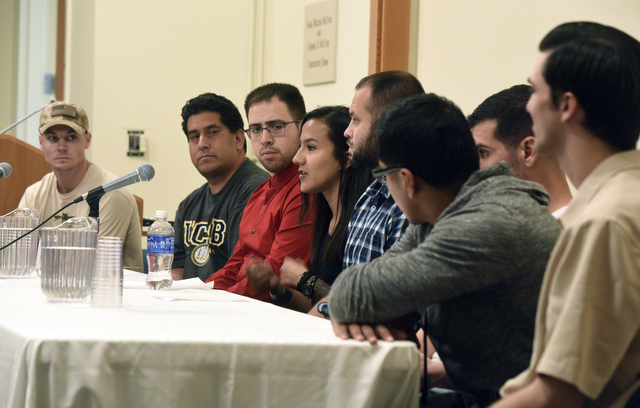
The students in UCSB’s Veterans Writing Workshop this past quarter arrived there after tours in Afghanistan, Iraq, and other parts of the world. As they worked to tell their stories — under the tutelage of Dr. Susan Derwin, who first devised the program five years ago — they not only dug into their experiences, but they ended up with well-crafted, thoughtful, curious, and utterly real writings. Here are stories by eight veterans of the Army, Navy, Marine Corps, and Air Force.

The Heaviest Shadow
by Edgar Guapo
Andy carried himself well. He wore a finely ironed uniform and the most polished footwear. He knew how to do his job and expected everyone else around him to know how to do theirs. This is how we found former Private Andrew Simeon (E1) while he worked at a Burger King in Copperas Cove, outside of Fort Hood, Texas. We had not seen him since he had gone AWOL [absent without leave] a few weeks earlier. He once carried an M4 rifle, now he carried a spatula.
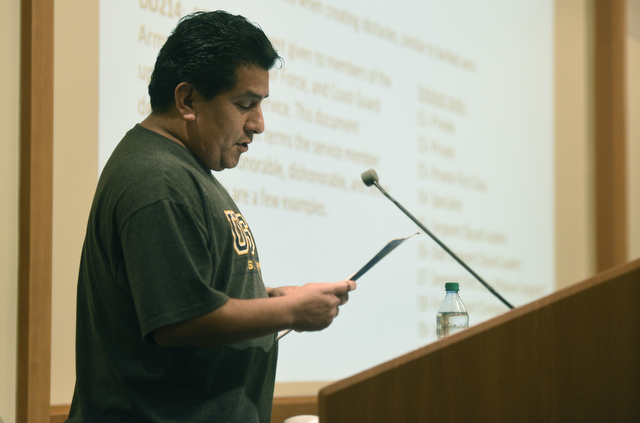
Private First Class Tate (E3) carried a duffel bag full of gear. The bag contained extra uniforms, a NBC [nuclear, biological, chemical] mask, a Kevlar helmet, and other assorted military items. On one particular weekend PFC Tate carried the duffel bag to a pawn shop to sell all of its contents. PFC Tate was demoted to Private (E2) when it was discovered he had knowingly sold someone else’s gear and used the money to pay for cocktails and lap dances Private Tate was discharged early, dishonorably. He went back home to North Carolina carrying a $400 car payment and no job.
Sergeant Sparger (E5) carried a small notebook where he always annotated the mistakes and deficiencies of the members of his squad. Positive comments were absent from the notebook. One evening, when he thought no one was listening or watching, he grabbed a soldier by his uniform and dragged him down a street for a few feet. He said, “If you don’t intend to re-enlist next year, then just go home now, go back to Mexico! Go sit around wearing your sombrero and drinking tequila with all of your wetback friends!” His actions were promptly reported by other soldiers who had witnessed the incident, some of whom had once worked for him. Soon after, he was the one being yelled at by the company’s First Sergeant (E8). His pay was reduced for a month, and he was ordered to perform extra duty from 6 p.m. to midnight for two weeks. From that time on, Sergeant Sparger carried the weight of Bravo Company’s stares. A hundred and twenty men’s long-held suspicions about his racism were now confirmed.
Specialist Dupleshon (E4) carried a lighter, a pack of Newport cigarettes, and not much else. He knew how to delegate the day’s work. At the end of the day, his uniform was as immaculately clean as it was at nine o’clock in the morning. Unlike Sergeant Sparger, he allowed his fellow soldiers to enjoy some downtime if the day’s work was finished early. For this he carried their respect. He carried Sergeant Sparger’s respect, because he had once put a beating on him. When Specialist Sparger (E4) first reported for duty to Fort Hood, he had already served four years as a Marine. He instantly began trying to boss around other lower-ranking soldiers, even some fellow specialists. He thought being an E4 in the Army should carry just as much respect and authority in the Army as it did in the Marines. He quickly found out it did not when Specialist Dupleshon kicked his ass.
Private Guapo (E2) carried an M249 fully automatic machine gun and its 200 rounds of ammunition. He was the only one in the squad who also carried Sergeant Sparger’s disdain. Sparger tried to remove Guapo, not just from the squad, but from the Army itself. At the end of an FTX [field training exercise], Sergeant Sparger dismissed Private Guapo for the rest of the evening. Later that night he reported Private Guapo as being temporarily AWOL. As a result of his lie, E2 Guapo was demoted to E1 and cast off to a different platoon. Private Guapo continued to carry the M249 plus the sharp concertina wire, the steel pickets, and the heavy picket pounder. These, along with land mines, were the tools of the trade for Combat Engineers. At the end of his enlistment, Edgar Guapo carried home a DD214 [Certificate of Release or Discharge from Active Duty] with an honorable discharge along with last rank held, E4 Specialist, and the satisfaction of knowing Sergeant Sparger was unsuccessful in removing him from the Army.
Enlisted ranks:
E1 — Private
E2 — Private
E3 — Private First Class
E4 — Specialist
E5 — Sergeant (Squad Leader)
E6 — Staff Sergeant (Squad Leader)
E7 — Sergeant First Class (Platoon Sergeant)
E8 — First Sergeant (Company Sergeant)
E9 — Sergeant Major (Battalion Sergeant)

Women Don’t Do That
by Alvin Arceo
“Heyyyy, mannnn. Rodriguez left me. I’m really drunk. You and Smith should come over. There are a few girls here.” It was Seaman Miller on the phone. He was crying, and it was clear he was in bad shape.
I didn’t want to go to the room he was calling from at the hotel on the military base, not at all, actually. But my friend sounded really out of it, and I knew that recently a girl had broken his heart. I also knew he was underage and that he’d be in serious trouble if he were caught drinking or intoxicated.
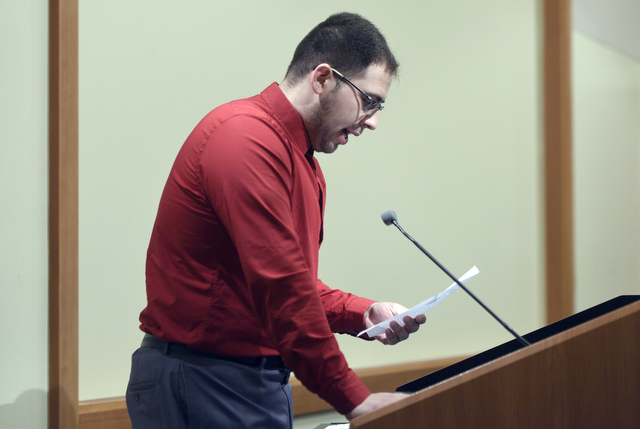
Less than an hour after I got the call, Smith and I were at the hotel room. We knocked on the door, and a girl I didn’t know answered. When we told her we were looking for our friend, she insisted there was no one with her. But then we heard Miller cry out from behind her, “Heyyyy, guys, I’m over here.” We knew something was very wrong.
When we walked into the room, her eyes lost the innocent glow they had. Her eyebrows were now furrowed, her forehead began to wrinkle, and her lips slightly pulled in. We didn’t need to be there, she said; she would take care of our friend. We told her that we were going to stay anyway, you know, just to make sure. She pretended like weren’t there. As soon as we closed the door she went straight back to him. Without any regard for us, she began to fondle him. Within the hour, Smith and I had rented another room and taken our friend away.
Miller couldn’t have consented. He could hardly stand, much less walk, out the door of the hotel. That night, when we took care of him, the only thing he was capable of doing was yelling and throwing up in a trashcan we placed next to him. He was so sick that after Smith and I got him to bed, we alternated shifts throughout the night, to make sure he didn’t die of alcohol poisoning. The next morning Miller couldn’t even remember what had happened to him.
I rarely think of Miller, but when I do, the events of that night always come to mind. You hear about it all the time: in military stand downs, in general military training, and in Sexual Assault, Prevention and Response training. I read about it in pamphlets, on Facebook posts, on blogs. I thought I knew what rape was, and which types of people committed it. I didn’t. I didn’t know that anybody can be a perpetrator, and anyone can be a victim, of a sexual crime.
Whenever I have the chance to inform people about sexual assault, I do. I do so to help prevent future rapes, and I also know that taking this action is my way of coming to terms with the memory of that night.

For a Moment, I Was Seen
by Rocio Iribe
The Marines were coming again. They had been here for years fighting a war they say we had started. I couldn’t tell you much about that, but the sight of them was something I’d gotten used to. Now, standing in front of my house, I could see the outline of their monster vehicles approaching, smoke billowing behind.
I went inside and walked to the back of the house. It was better to be out of the way.
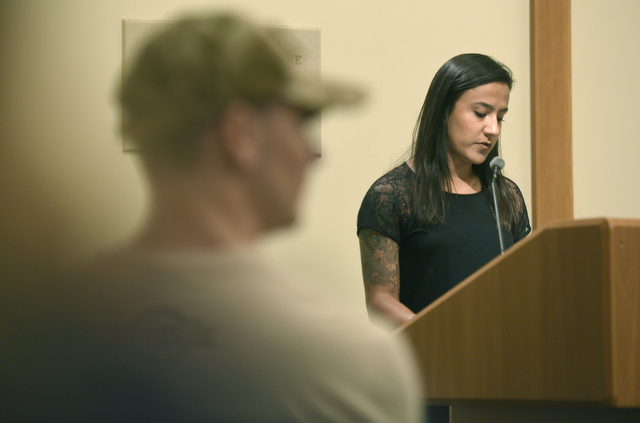
The Marines had arrived. I could hear my husband talking to them. My house was surrounded by Marines with rifles, their monster vehicles arranged neatly in a row. Two Marines entered the backroom. I wondered what they were doing here. Nobody ever talked to me. When they took off their helmets, I saw that they were women. I didn’t know Marines could be women! The one with the dark skin was in charge. I could tell. Her eyes were focused and alert, but they also looked kind, honest and kind. I thought that if anyone would listen to me, she would be the one. “Excuse me, miss,” I said. “Would you like a tour of my house?” I asked as I pointed outside. She turned, smiled, and followed me outside.
As we walked, I pointed out all of the native plants. I told her I’d lived in that house for a very long time, that all the people from my neighborhood were good people. I took her to my kitchen, where I had a whole chicken cooking over a fire pit. “Isn’t this fire pit impressive? I dug it myself! It took me a long time. Do you like chicken?” She was looking intently at me, nodding and smiling. My husband never paid much attention to me, so it was nice finally to have someone listen to me.
I was beginning to wonder whether we might possibly become friends, when she suddenly took a camera out of her pocket. She pointed to me, then to herself, then to the camera. “Yes!” I said. I called my son over, who took a photo of the two of us next to my impressive fire pit. Meanwhile, I could see other Marines with rifles yelling and waving at us, as if they were trying to get her attention, but I didn’t care. I’d made a friend. The woman with the dark skin and kind eyes was going to be my friend.
My son handed her back the camera, and I thanked her sincerely. I was telling her how much it meant to have another woman around to talk to when finally she noticed the Marines who had been yelling and waving. She whipped around and gasped. When she turned back to look at me, the kindness in her eyes was gone. Looking at me like a stranger again, she backed away, waving her hands and shaking her head. Then she spun around and walked quickly back to the house. “Wait, what happened? What did they say? Why are you leaving?” I yelled as I tried to catch up with her. I stopped. It was over. The woman with the dark skin and kind eyes was gone. And I was alone again, friendless, ignored, forgotten.

Red Bull Soccer
by Martin Carranza
I will never forget the village of Marjah. It’s where I learned a lesson that I will carry with me everywhere I go. It was a Tuesday morning, and the other Marines were up before me, making faces of disgust at the veggie omelet in their MRE — the packaged food we used in combat.
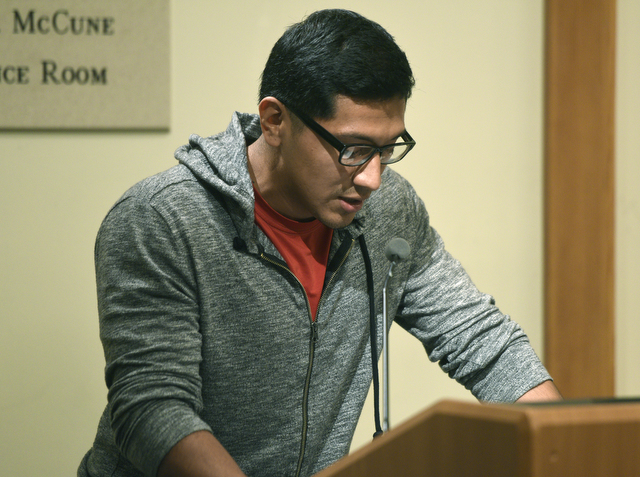
PFC Renard, the most squared-away boot, approached me. “Morning Corporal. Lieutenant said you are in charge of making the rounds for the village today.” I gave him a thumbs-up and told him we’d be leaving in 15 minutes. By then the men would be finished with their breakfast.
This would be was my first time doing the daily village rounds; I would always stay behind as the Guard Duty Non-Commissioned Officer in Charge (NCOIC). As we entered the local village, I heard the villagers whispering about our uniforms. They kept pointing at our nametags, while immediately breaking eye contact and lowering their heads. Somehow I still I felt their eyes following our every move. While our interpreters asked the routine questions, I noticed a group of 10 small children playing soccer. As I made my way toward them, I realized they were kicking around an empty Red Bull can. I must have stood there for five minutes watching them. They were completely absorbed in the game, and they made me think about what it takes to find the state of happiness they seemed to have found. Here they were, the middle of war-torn Afghanistan, playing soccer with a tin can, barefoot and smiling, laughing, and enjoying each other’s company. And me? I spent my time hating every minute in the very place these kids called home. Nothing I could do would make time pass more quickly. For these kids, time was irrelevant.
PFC Renard shouted, “Hey Corporal! Terp here says we need to take this guy in for questioning. Waiting on your orders.”
My mind had taken in his words, and automatically I gave a thumbs-up. But I could not take my eyes off of the kids. One part of me wanted to put down my rifle, take off my uniform, and join them. But the uniform is what allowed me to get close enough to them to witness their intense play. I gripped the buttstock of my rifle and squatted down. From my cargo pocket I took our two packets of Starburst, four Kit-Kats, and a large can of Rip It. I placed these things on the ground and walked away. Soon after, when my team was about to leave the village, PFC Renard gave the signal of caution.
“There is a group of youngins rushing towards us!”
“I got it. Stay back,” I responded. Then I started walking toward the kids, giving them hand signals to not run away. I moved my rifle to the side, got down on one knee, and was greeted unexpectedly with a hug from the smallest player on their team. In broken English he said “Thank you.” Then he ran back to the group.
That boy’s hug humbled me. It was a reminder to cherish the small treasures life has to offer. As my team left Marjah, I waved and smiled at the kids. I tried to signal to them that I would be back to watch them play. I never did come back, but I did learn that other Marines were now leaving treats, just like I had done.

First Night Out
by Dereck Sutherland
Habib awoke to the loud, rapid beats of helicopter blades. The other men in the room jumped up and started running in a desperate panic. His older brother motioned for him to follow out the door. Still dazed from his state of sleep, he went to grab his sandals but noticed that the others had left theirs, bolting from the compound with bare feet. As he reached the gate, he realized that everyone had run in different directions. He picked out the shape that looked most like his brother and chased after it as fast as he could. The rotor blades, seeming ever louder, reinforced the need to escape from the impending danger.
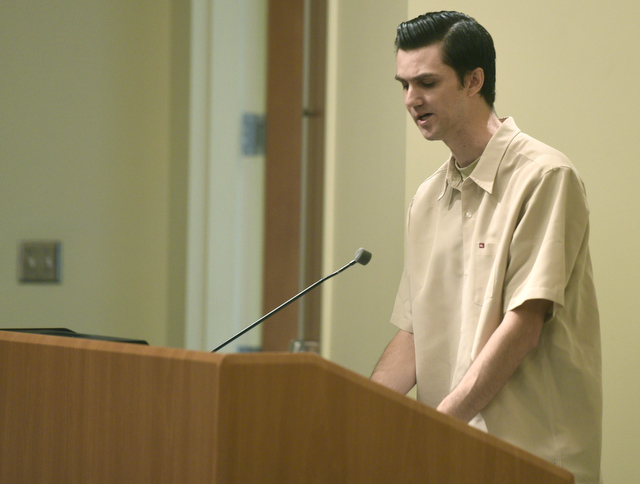
Catching up to the figure in front of him proved difficult. After crossing the second field he realized that his brother would not have been able to run this fast. He didn’t know what else to do, so he continued to follow what must have been one of the men his brother had brought him to meet that night. The man stopped at the line of trees at the end of the field and noticed Habib, who had caught up to him. Then, between labored breaths, the man shouted, “We have to run in different directions, you fool!” The man then continued along the row of trees and disappeared into the night, leaving Habib alone in the darkness. The helicopters could still be heard in the distance.
Not knowing what else to do, Habib started for the next field. The irrigation trenches were deep, making it difficult to cross them. Finally he came upon a wooden pen filled with goats. Exhausted, he realized that he could not run forever. He noticed a wooden shack at the end of the pen that looked like it would be a suitable place to hide and catch his breath. As he was about to enter the shack, he was violently grabbed and knocked to the ground. The largest dog he had ever seen had its teeth firmly in his arm. He tried to push the dog away but couldn’t because the wind had been knocked out of him. His body instinctually curled up into the fetal position, as the beast continued to thrash and pin him down.
Tears ran down Habib’s face and blood ran down his arm as he was forcibly marched back to the compound by the U.S. soldiers and their horrible dog. This had been the first night that his brother had taken him along to plant explosives on the road. After digging holes and planting bombs, they had hopped back on the motorcycle and headed to the compound where Habib had been introduced to the local commander. He had felt excited finally to be a part of the fight. The other men he met that night told him wondrous war stories before they all decided to go to sleep. Now though, he felt alone, scared and embarrassed for having gotten caught. How could he become a great fighter if on the first night he got to take part in the war, he had been apprehended by the infidels? As he was pushed into the compound, he saw that despite having split up, all the others had been captured as well.

Seven Months
by Yevgeniy Levin
As the C-130 touched down on the runaway in the scorching Afghanistan desert, Anderson looked around at the fresh faces of his young Marines. There were 180 of them, finally arriving on their first deployment. They looked anxious, but excited. Their training had prepared them for this moment. And while Anderson saw a reflection of himself in their eyes, he did not share their enthusiasm. Not this time. He was newly engaged to the love of his life. Leaving her behind was the hardest thing he has ever done. He knew it would be seven long months
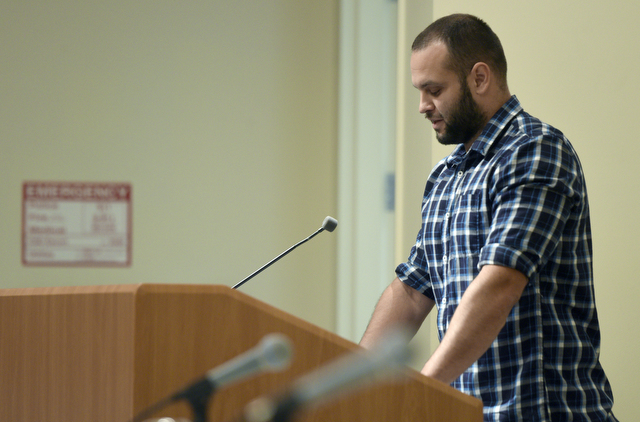
It had been less than a year since his own first deployment had come to an end. And in the time since he had left this god-forsaken desert, his world had been turned inside out and upside down. The last time around, everything had been so simple. As a single Marine on his first deployment, there had been less to worry about. He smiled as he thought back to when his only real concern was how jacked he could get at the gym in seven months. The smile faded, now, as he felt the emptiness inside, knowing he wouldn’t see the love of his life for seven long months.
Hours turned to days, days to weeks, weeks to months. He went about his daily duties on autopilot. He didn’t feel the heat, the sweat, the ache of his muscles. His body was there, but his mind always drifted back to Hawaii, where his fiancé patiently awaited his return. Every night Anderson went to the call center, sometime standing in line for hours, so that he could speak to her. Her voice was the only thing that kept him going.
The deployment wore on. The unbearable heat dissipated; Afghanistan turned into a freezing hell. Did it change in a day? A month? He had no idea. The calls to Hawaii became less frequent. The conversations became arguments. Eventually there was silence. Anderson withdrew from everyone around him. Desperation replaced the emptiness he felt, as he struggled to salvage his relationship, even as the rumors about his fiancé reached him from Hawaii.
Anderson became inattentive, his mind wholly occupied by thoughts of the only woman he had ever loved. He was counseled for the mistakes he was routinely making. He was endangering the other Marines, but he didn’t care. Then one day, he received a letter. Everyone, including Anderson, already knew what it said, without having read a single word. Still, Anderson took the letter and walked away. He tore open the envelope and ran his eyes over the page. He read the words, but they didn’t make sense to him. Then he crumpled up the letter and threw it into the trash, as all hope and desperation drained out of his body. He knew there was only one thing for him to do.

Kill Cards
by Max Peck
Kill cards. They are small laminated pieces of paper each marine and sailor keeps in his left shoulder pocket, per standard operating procedure. They contain essential information about the person carrying it, including blood type, and a kill number made up of the first initial of his Company, the first initial of his last name, and the last four digits of his Social Security number. Kill cards. What an inappropriate name. They are meant to save lives, so you’d think they’d be called life cards. But the Marine Corps won’t allow that; it only deals with death.
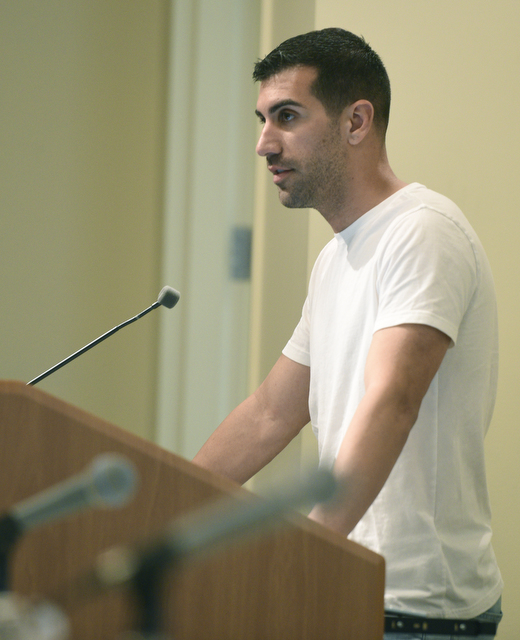
HM3 Zarian Wood was a part of the new wave of corpsmen my battalion had received in preparation for our deployment to Afghanistan. I had been given the task of making kill cards for all new attachments. Wood’s first name had somehow stuck in my mind, so when I made his cards I incorrectly made his kill number IZXXXX instead of IWXXXX. I hadn’t realized my mistake until Wood told me about it when we were in country. I took my job seriously. I meticulously finished tasks, especially those that made it into my log book. I remember writing down that I needed to issue him new kill cards.
Whenever I’d open the book, I’d see my note, but with so much going on in Afghanistan, fixing Wood’s kill cards became just another task I still hadn’t completed. Wood and his squad were stationed at a different patrol base than mine. From time to time our patrols would link up or he’d make it to my position, and he’d remind me about it. I always told him I’d have the new cards ready for him the next time we met.
HM3 Wood became our batallion’s third casualty, another service member taken out by burrowed bombs in the ground. When he was tagged, our Company Commander was the first one to treat him and called in the nine-line. Amidst the chaos, maimed HM3 Wood told our Captain his kill cards were incorrect, and he gave him his correct kill number. In the helo headed to Kandahar, Wood died. He died of blood loss. When I heard the news, my stomached dropped. I still hadn’t made is new kill cards. Little things can add up. I felt like I had jinxed him.
But there wasn’t much time for me to dwell on Wood’s death or to feel sorry for myself. There were other marines and sailors who would need me to be at my best, just as I needed them to be at theirs. We all kept each other alive. I used my mistake as motivation to never slip up again. In the end I received a Navy and Marine Corps Achievement Medal for my superior performance of duties while in Afghanistan.
But infantrymen are a superstitious bunch. What if I had never issued Wood the incorrect kill cards? What if I had cursed Wood to die, because I had it in my power to fix something simple, and I never did? It’s hard to live with that. Wood. I’m sorry.

‘Thanks’ Given
by Derek Downey
I have received thanks from many civilians who assume that because you have worn the uniform you have been overseas and have been at war. Many civilians are not informed about the topic of serving in the military. They only rely on what they see in Hollywood or in the media, and they assume we are over there killing everything in sight, in the name of protecting the country. There is a distinct contrast between what you see in the movies and what actually happens. Even as a veteran. I do not fully know what other service members have gone through; we each have had our own experiences while serving, some good, many bad.
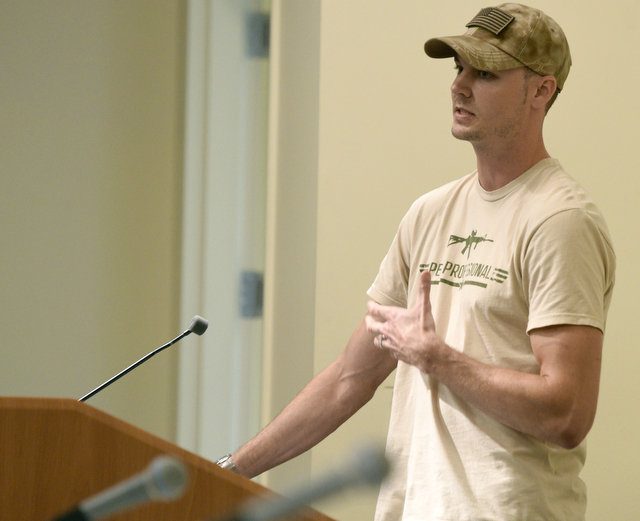
I was on a boat off the shores of the Persian Gulf for the majority of the 10 years I served, but I have had my boots on the ground, been on the front lines, and have felt the exhausting heat of Afghanistan and Iraq. I have not been a part of the door kicking, guns blazing, shoot ‘em in the head, glorified Hollywood image of war, though. I have seen death, have blood on my hands, and fully experienced the hardships of conflict. I choose to not talk to many people about my experiences overseas. I am fortunate to have the support of my loved ones, and I speak with them about the battles I have fought. I cannot imagine sharing my military experiences to the strangers who have asked me, “Have you ever shot anyone?” as if I were some Hollywood Hero who just stepped out of the movie screen.
I have not always been well-treated by civilians. Some have falsely assumed that I only joined because I was a delinquent who had no options. In truth I joined because I have pride in my country, and I wanted to do something to better it. I have been disrespected for wearing the uniform. Once, when I had returned from a seven-month deployment and was enjoying the company of my family and friends at a restaurant, a person came up to me spat on my ribbons, called me a baby killer, and said I was going to go to hell for what I represented. The only thing I can suggest to that gentleman and to every civilian is, while you may not agree with the war, never discredit the men and women who are sacrificing a lot for your freedoms, and show your appreciation in some form, not just with a “Thanks for your service.”
I am pleased when a civilian who sees my morale patches on my backpack asks if I served and thanks me for my service. But many of us need more than a “thank you.” If a civilian wants to show true appreciation to the American war fighters, stand up more for their right to better health care, or get homeless vets off of the streets and get them the help they desperately need. Take time to visit your local VFW or VA and have a conversation with a veteran. Many veterans will be open and tell you wonderful stories of their time serving if you show sincerity and interest in our sacrifices. Help be the voice of the people who are fighting on a daily basis to get more help.
I am one of the lucky ones, but other veterans, like those taking their own lives, feel hopeless and abandoned by the very citizens they protected. Veterans need the support of civilians as they transition from the military into the civilian world. Support programs that are supplying veterans with the help they need. As a veteran I am giving back to my community, and it is my life’s passion to build my business of taking in rescue dogs and training them to become service dogs, and then pairing those dogs with veterans who have service-connected disabilities. This will enable me to help fellow veterans cope with their lives after service. Many of us are hurting mentally and physically. Be the voice of the people who must fight every day to get the help they need.



